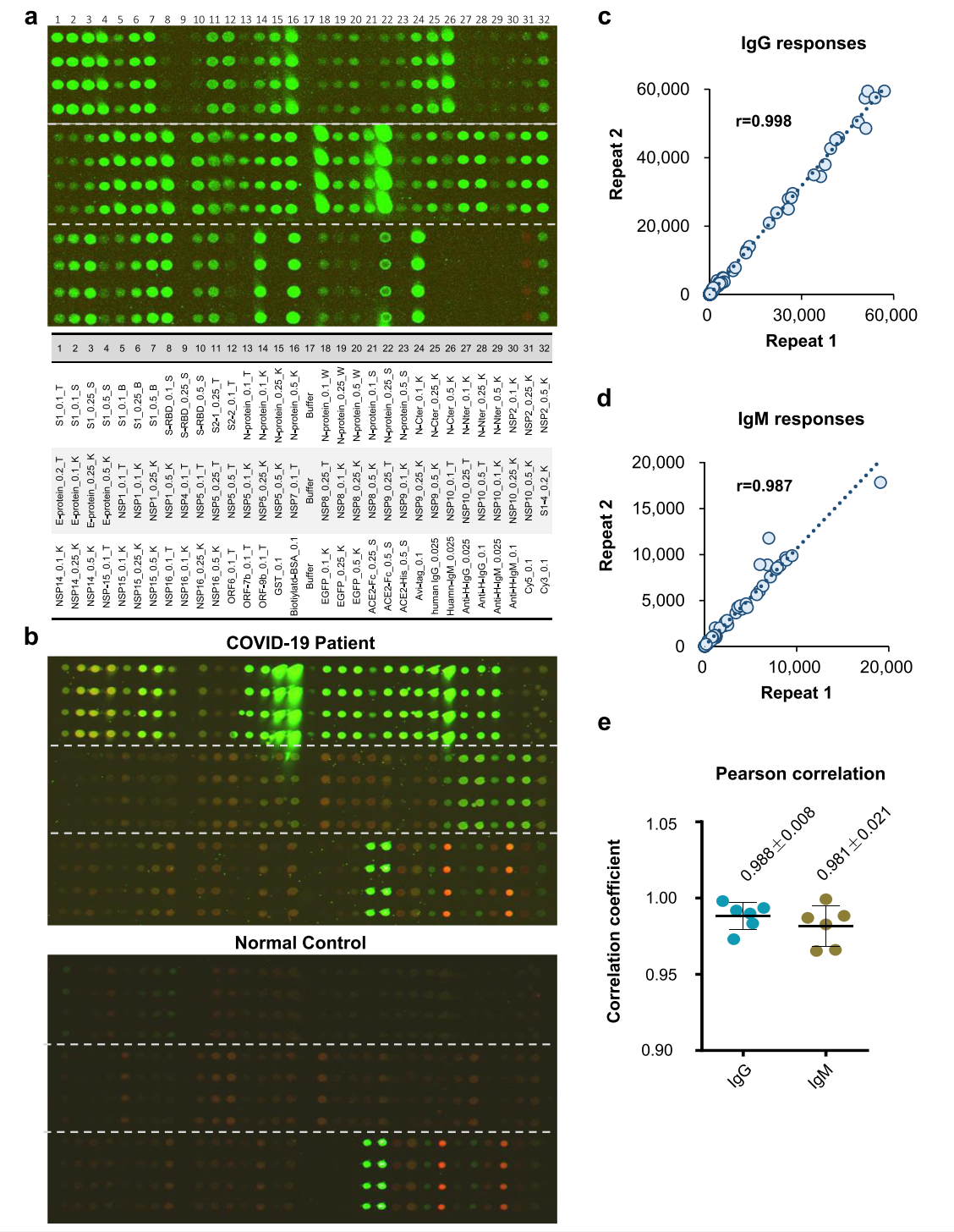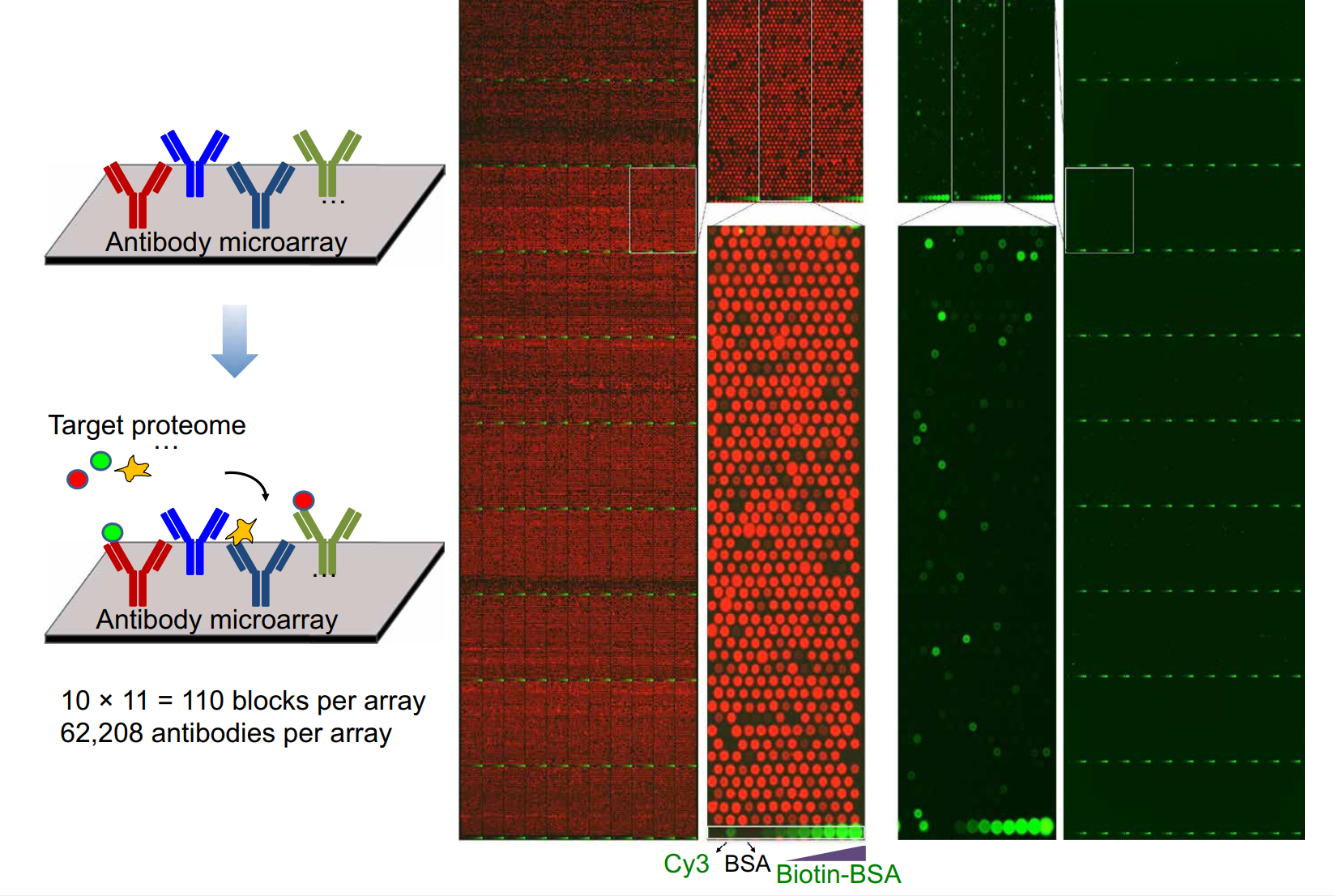Fueled by the ever-growing DNA sequence information, the field of proteomics has become one of the most important disciplines to characterize protein function and activity and provide insight into functional networks on a global scale. Because of the power of high-throughput, miniaturization, and parallel analysis, protein microarray is one of the most promising technologies for proteomics study. Our laboratory is focusing on protein microarray technology development and its applications in biological and clinical studies. Specifically, our current studies include:
Proteome microarray. We've already setup a variety of proteome microarray platforms, such as the Mycobacterium tuberculosis proteome microarray (>4,000 proteins) (Cell reports, 2014), the Dengue virus proteome microarray (Molecular and Cellular Proteomics, The PAGE technology), and the SARS-CoV-2 proteome microarray (Nature communications, 2020).
We are able to de novo construct other proteome microarrays wherever necessary. Based on these microarrays, we are performing systems biology studies. The microarray platforms are and will be used for serum biomarker screening, host-pathogen interaction study, protein post translational modification study(e.g., such as acetylation), protein-protein interaction study, protein-DNA interaction study, and etc.

The SARS-CoV-2 proteome microarray with 21 proteins
Cutting edge microarray related technology development. Based on our microarray platforms, we are developing several cutting edge technologies, such as fast protein/ peptide microarray fabrication, high density antibody microarray, e.g. 1000~30000 antibodies on a single microarray (Science Advances, 2020) for convenient global protein level monitoring and comparison, microarray based technologies for global PTM enzyme and key regulator discovery.

The antibody microarray with 62,208 monoclonal antibodies